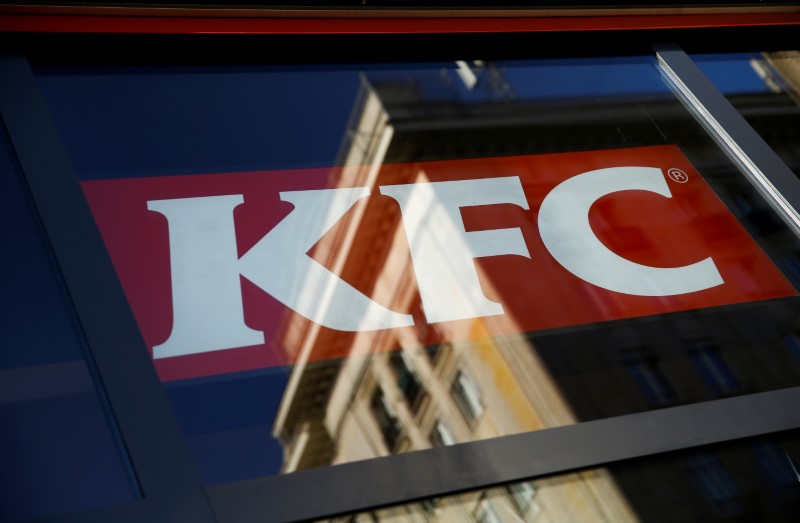(Reuters) - KFC on Tuesday apologized for an advertisement in Australia that shows two boys ogling a woman's breasts, after calls from a local campaign group to boycott the fast-food giant over the ad it called "sexist".
The 15-second ad, which has been running on television for the past three weeks and is also posted on KFC Australia's YouTube channel, shows a woman dressed in a short playsuit check her bottom and adjust her breasts as she looks at her reflection in the window of a parked car.
The car's window then rolls down to show two young boys staring at the woman's breasts, before she smiles and says, "Did someone say KFC?"
The Zinger Popcorn box ad has so far garnered over 60,000 views with over 160 dislikes and 700 likes on YouTube.
"We apologize if anyone was offended by our latest commercial. Our intention was not to stereotype women and young boys in a negative light," a spokesperson for Yum Brands-owned (N:YUM) KFC's South Pacific unit said.
While many viewers did not approve of the ad, some took to Twitter to label the ad "funny" and said there was no need for the company to apologize.
Collective Shout, a group which campaigns against the objectification of women, condemned the ad and said https://www.collectiveshout.org/kfc_serves_up_buckets_of_sexism?recruiter_id=30544 it was a "regression to tired and archaic stereotypes where young women are sexually objectified for male pleasure."
"Ads like this reinforce the false idea that we can't expect better from boys. It is another manifestation of the 'boys will be boys' trope, hampering our ability to challenge sexist ideas which contribute to harmful behavior towards women and girls," the group's spokeswoman, Melinda Liszewski, said.
Last month, exercise bike maker Peloton Interactive Inc (O:PTON) faced heavy criticism for its Christmas advertisement, in which a woman receiving the company's bike as a gift from her husband was called "sexist" and "dystopian" on social media.
Some said the husband was "controlling" and "manipulative" as buying his wife an exercise bike suggested that she needed to lose weight.

Both ads were criticized nearly a month after they were first published on online media and television.